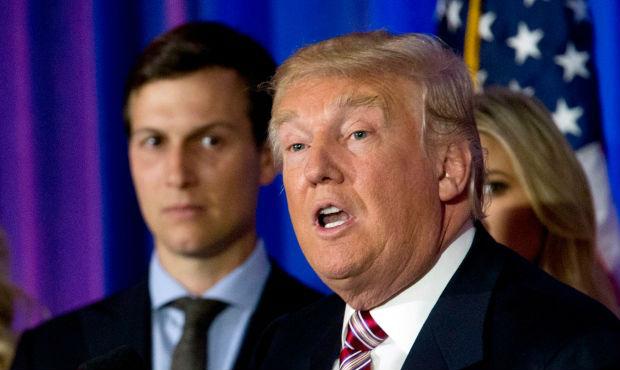Donald Trump's conflicts of interest are worse than you think – and they could end up bringing down his presidency
A sale of the Trump Organisation, with its 515 subsidiaries, would be exceedingly complicated. Done on a shotgun basis, it could cause its chief shareholder considerable tax losses


This Wednesday, Donald Trump – tweets aside, America’s most reclusive President-elect – is scheduled to give what will be his first press conference in six months.
It’s also his best and probably last chance to explain how he plans to resolve the huge potential conflicts of interest between his job as chief executive of the United States and chief executive of an opaque global conglomerate with revenues of $10bn, whose main – and currently appreciating – asset is his name. If he doesn’t, the issue will bedevil, undermine and conceivably bring down his presidency.
It won’t be easy. Trump of course is in large part author of his own misfortunes. His umbrella company, the Trump Organisation, is private, meaning it is required to produce few figures. He’s also defied the example set by every previous White House candidate since Richard Nixon by refusing to publish the documents that might have provided real insight: his federal tax returns.
The ideal solution, obviously, would be full divestiture of his businesses. But that’s easier said than done. A sale of the Trump Organisation, with its 515 subsidiaries (roughly half of them bearing his name), would be exceedingly complicated. Done on a shotgun basis, it could cause its chief shareholder considerable tax losses. There’s been no sign Donald Trump plans such a step.
An alternative, pursued by presidents before him (though none with assets approaching the size of his), would be to place his interests in a blind trust, run by a completely independent third party who has no contact with him.
But Trump hasn’t sounded very keen on that option either. His idea of a blind trust is to turn over management of the Trump Organisation to his children. But that would create no real barrier between him and his business, and even less of one now that he has named his son-in-law Jared Kushner as a senior White House adviser.
Others talk of an independent “monitor”, who would represent Trump and, supposedly, nip any possible conflict of interest in the bud. But would a monitor really be made privy to the entirety of the dealings of the Trump empire?
To be fair, the next president (or rather the army of legal advisers that have been working on the problem since his upset victory in November) has tied up some loose ends. Business ventures in certain, particularly sensitive countries will be ended, and lawsuits against the now defunct Trump University have been settled. He has also announced plans to dissolve the controversy-shrouded Trump Foundation.
Complicating matters further, a president (and vice-president) is exempt from the more stringent financial disclosure and divestiture requirements faced by cabinet and other top administration appointees.
One thing Donald Trump is not exempt from, however, is the “Emoluments Clause” of the US Constitution, banning a president from receiving gifts from foreign countries or leaders. So what about foreign governments and individuals who invest in Trump ventures or spend big money at his hotels and resorts?
The lawyers are out on this one, but some claim Trump will be in violation of the Emoluments Clause from day one in the Oval Office. Which is just one more reason the proposals he comes up with tomorrow had better be good.

Join our commenting forum
Join thought-provoking conversations, follow other Independent readers and see their replies